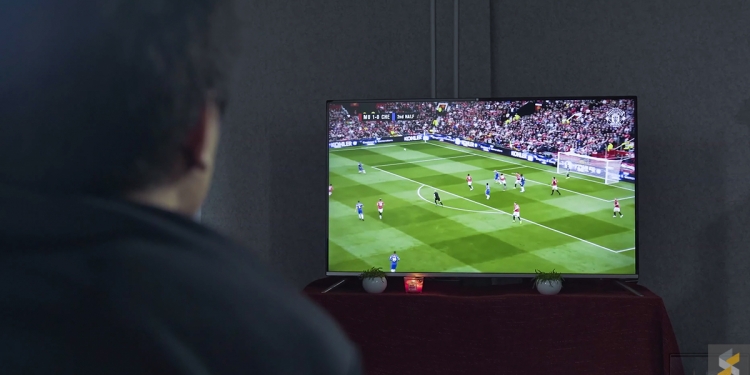Entertainment has certainly diversified in the past few decades, and like everything else that’s changed over the last two years, COVID-19 sped up this diversification to match consumer preferences. This included how we consume entertainment, which led to a renewed demand for personalised home entertainment.
Hitting the good ‘ol idiot box or Internet-enabled device became the sole go-to option for people to entertain themselves during the lockdowns.
These days there are a plethora of networks and online options to choose from, as shared in a recent article by TM Chief Commercial Officer Anand Vijayan in the Official TM Blog.
The article highlighted how entertainment has advanced so much that one doesn’t even need a TV to consume entertainment content as this can be done via a smartphone or any other Internet-enabled device.
Besides satellite TV, there are also OTTs – Over-The-Top platforms the likes of Disney+ Hotstar, Netflix and Amazon Prime Video – that have become a catchphrase for media services aimed at viewers using the Internet.
Data from the Department of Statistics Malaysia (DoSM) showed that access to digital services is high across various platforms and devices: 95.5% on Internet browsers, 99.6% on mobile phones, 99% via television and 83.2% for pay TV channels.
DoSM also found that internet usage increased last year largely due to the increase in activity on social networks, at 99%; followed by the increase in movies, videos, music, and games being downloaded and played, at 91.8%.
In addition to those shifting consumer patterns, the TM Blog article also raised an interesting nugget of information that another reason for the changing landscape of the home entertainment industry is the fact that people now have better access to connectivity, software and hardware.
Malaysians are now enjoying better fixed broadband speeds which will be further complemented by the country’s nationwide 5G rollout ― making it easier for consumers to access online content both at home and on the go. We also have access to higher-performing and more affordable devices, which, coupled with OTT platforms, means that content can be accessed at any time, anywhere.
In addition to mobility, consumers can now choose when to binge their favourite movies and TV shows, without having to wait for them to air on a fixed programme schedule. Consumers can even pause, fast-forward and rewind their favourite episodes at their leisure.
The article also mentions hyper-personalisation as another significant shift in the way we consume content ― with streaming platforms offering recommendations based on an individual’s digital footprints through big data analytics and algorithms.
This is one of the subtle ways service providers can improve customer loyalty and even introduce new consumption habits. It can also lure new viewers into experiencing new genres by clicking on other suggested titles and content.
This has helped providers serve increasingly niche markets such as otaku or anime fans as well as viewers who enjoy entertainment from a specific country or language (cue Korean dramas and Bollywood movies). OTT platforms have also achieved outstanding revenue margins by making use of their extensive selections and seamless onboarding process.
Ever-growing content libraries or portfolio diversification has helped to attract a wider community of audiences to join streaming platforms, helping these OTTs to open up new markets or establish greater market dominance.
However, in a country as diverse as Malaysia, there are still challenges in creating a truly personalised experience. Serving multi-lingual and multi-generational households continue to be a key consideration.
Service aggregators have sought to solve this problem by including various OTT partners under “one roof”, providing a mix of local, regional and global streaming content for diverse viewers.
With new entertainment options emerging in the market, service providers need to continuously upgrade themselves and think of innovative ways to stay ahead of the competition ― leveraging consumer analytics and preferences to stay one step ahead.
With these trends showing no signs of slowing, one thing that is certain is that the days of staring at the idiot box while waiting for a show or movie to come on are now fast becoming a thing of the past. — Malay Mail








